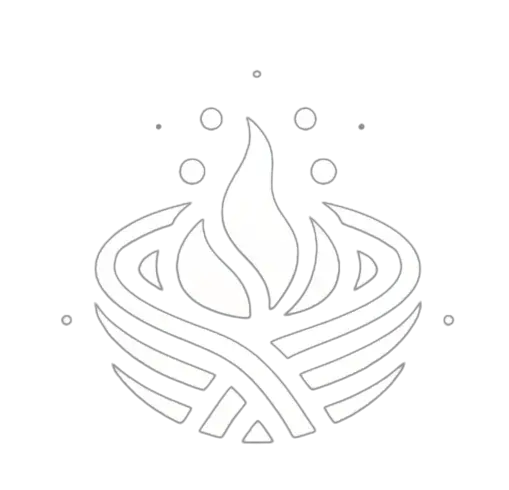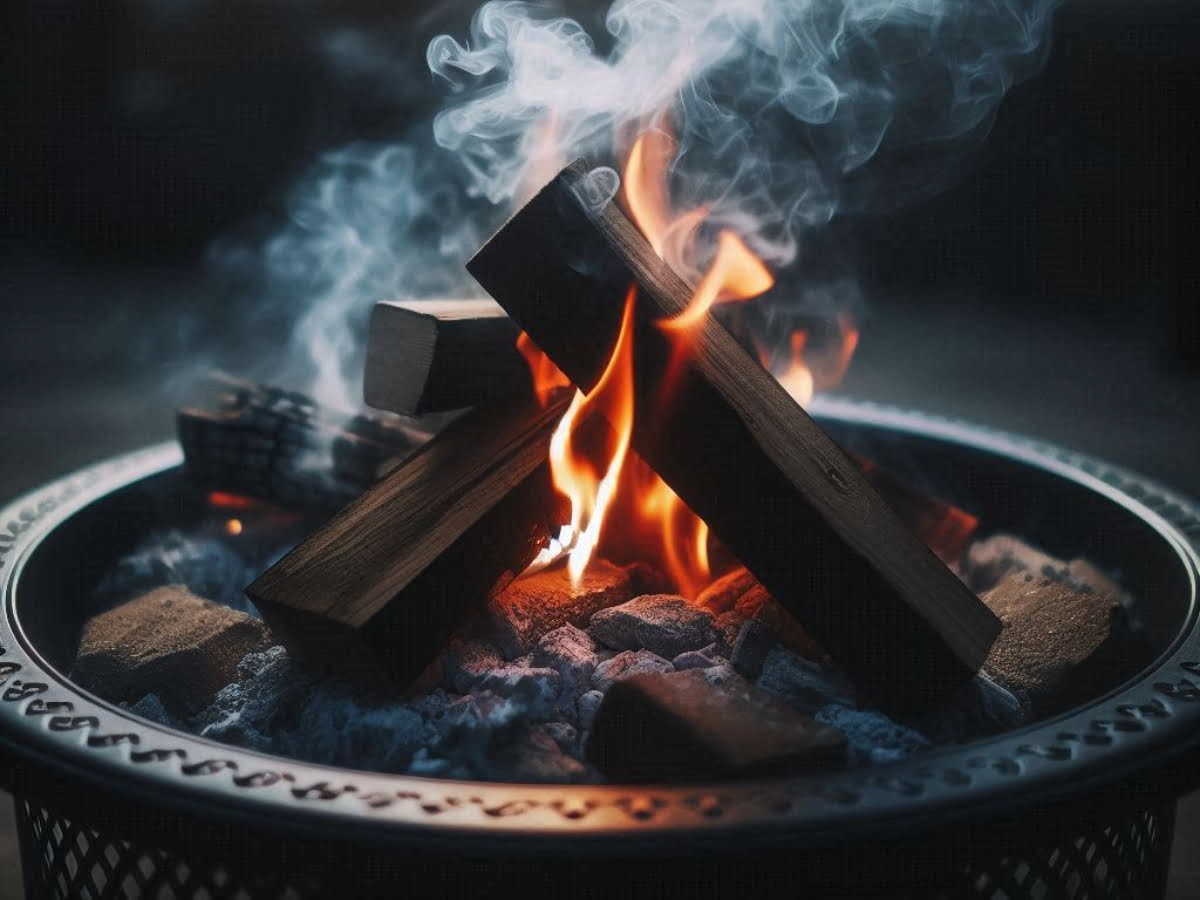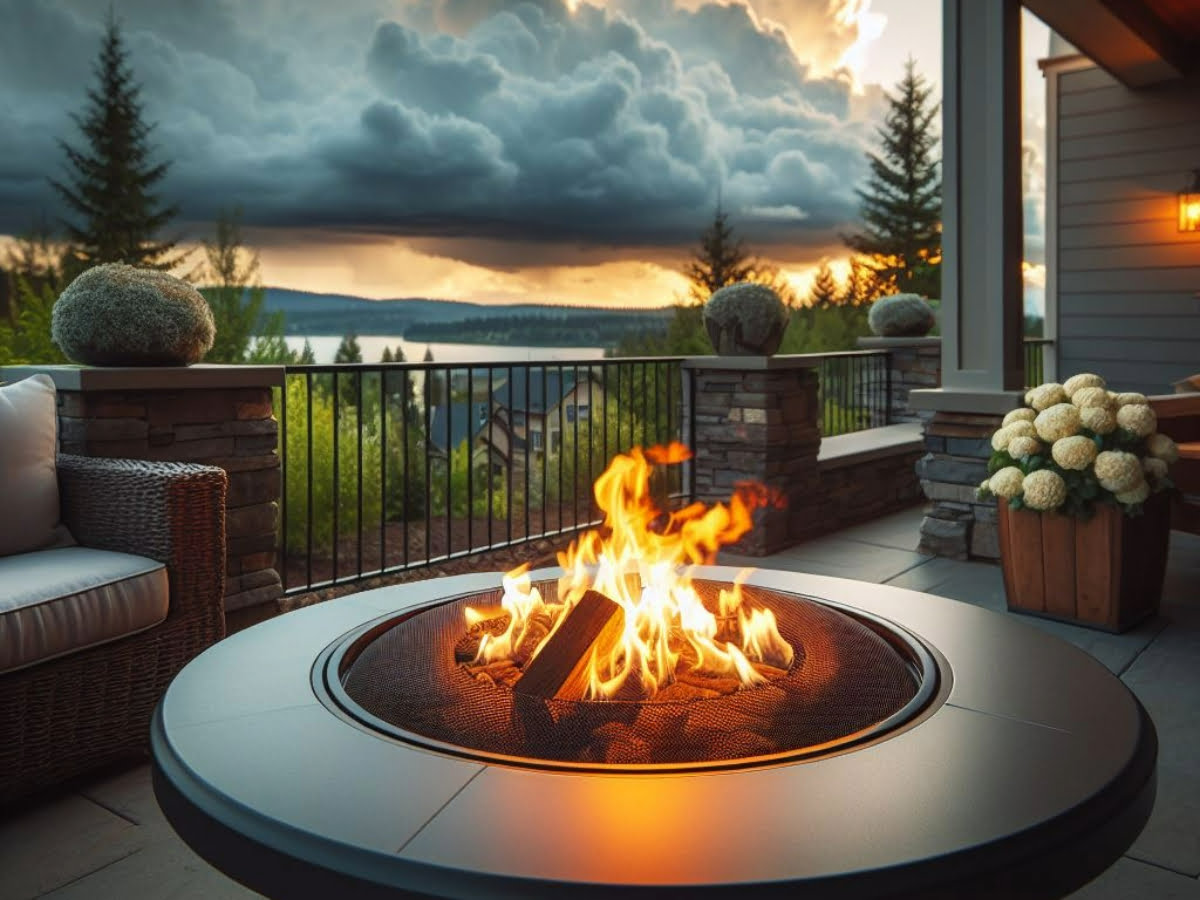Fantasizing about late summer nights spent enjoying the warmth of a glowing fire pit fire without the smoke? Propane fire pits offer a smooth and neat-burning fire pit option. Occasionally, your propane fire pit may be reduced to calling attention to smoke, even though you consider it to be a clean-burning fire pit. If your propane is smoking, not to worry! Below this, we break down the 3 reasons why your propane fire pit is making smoke and give tips for troubleshooting your fire pit to get it back to a pristine, smoke-free state. So, as long as you’re reading this, get reading to enjoy those tranquil outdoor nights without any interruptions from smoke!

Do propane fire pit make smoke?
No, propane fire pits don’t create smoke. Propane fire pits have long been a favorite for delivering warmth and ambiance without the annoyance of smoke that comes with wood-burning options. This is because the propane fuel burns significantly cleaner than wood, producing mainly water vapor and carbon dioxide, which results in a fire that is virtually smokeless. This means that you do not experience smoke rolling in your face, but you also experience an overall cleaner and more enjoyable outdoor environment. However, there may be times when smoke is created and this can be because of impurities in the propane or if the burners become clogged. Proper operation and maintenance are important to avoid smoke during every use of your propane fire pit.
3 Reasons Your Propane Fire Pit Is Making Smoke:
Have you noticed that smoke is coming from your propane fire pit? If so, understanding why your fire pit is producing smoke will be immensely helpful in troubleshooting and resolving the issue effectively. In this section, we will discuss three factors that may result in your propane fire pit producing smoke:
Impurities in the Propane:
The purity of the propane fuel you use is a key element in ensuring that your fire pit will operate cleanly. Propane has a reputation for burning clean, yet can be adulterated or blended with impurities during its storage or transport to your home or business. These impurities can disrupt the combustion process and will lead to incomplete combustion and smoke production. It is important to use high-quality propane to remove the risk of impurities causing smoke from your fire pit.
Clogged or Dirty Burners:
The burner of your propane fire pit can gather dust, debris, and remnants from burned propane over time. These contaminants can block ports of the burner and obstruct the flow of propane fuel thus leading to incomplete combustion, increasing the likelihood of smoke.
Incorrect Air-to-Fuel Ratio:
Reaching a correct proportion of air to fuel is critical to propane fire pit combustion efficiency. When the proportion is incorrect, due to a defective air mixer or regulator, the combustion process may be disrupted and result in incomplete combustion as well as smoke release.
How to Fix Smoke Issues in Your Propane Fire Pit:
To address smoke issues related to your propane fire, follow the specific, targeted troubleshooting and maintenance for each component that requires it. The following is a comprehensive guide on how to address the issues mentioned above.
Dealing with Impurities in the Propane:
If there are impurities in the propane you are using, then your fire pit will be more prone to producing smoke. To prevent this, it is best to use propane that is free from impurities. Make sure you are obtaining your propane from reputable sources who tell you that they have high quality, pure propane. You may want to install a propane filter or an inline filter to remove impurities and contaminants from the propane before it enters the fire pit. In order to stop the propane from appearing unclean and causing smoke, you must ensure that the fuel lines and connections are inspected and cleaned.
Cleaning Clogged or Dirty Burners:
Inspecting and cleaning the burners will need to be done semi-regularly in order to stop any smoke that will come out of the flames whenever the propane fire is burning. When you are inspecting you will want to check for soot, debris, and rust building up on the burner. If any of these are present in the holes or across the top of the burner, you need to carefully remove the debris to allow for proper airflow. For burners that are caked with buildup, you can try soaking them in warm water and gentle dish soap to break down the debris. After soaking you’ll wash them and then let them air dry before reinstalling them into the fire pit. By maintaining your burners unobstructed and clean, you can ensure that your fire pit will burn efficiently and have the least amount of smoke possible.
Adjusting the Air-to-Fuel Ratio:
The proper air-to-fuel ratio is essential for your propane fire pit to burn efficiently. You should first examine the regulator and air mixer for any signs of damage or defects. If everything appears to be in good condition, you can then change the air-to-fuel ratio as directed by the manufacturer’s guidelines. Properly calibrating these settings is vital for efficient combustion as well as minimizing smoke. If you do not feel comfortable with adjusting your air-to-fuel ratio or suspect that something might be wrong with your fire pit components, you can locate a qualified technician or propane specialist for assistance.
Along with following these specific troubleshooting steps, it’s important to include regular maintenance practices in your fire pit care routine. This means, cleaning the fire pit regularly, examining all the parts for signs of wear or damage, and adhering to the maintenance schedule the manufacturer recommends. By addressing these issues proactively and implementing preventive maintenance measures, you can enjoy a smoke-free experience with your propane fire pit consistently.









